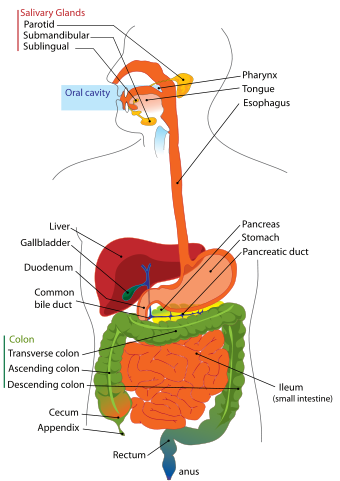
Living with Crohn’s disease is not easy. Artist Deborah Wade has suffered years of excruciating pain from a disease that is caused by an overactive immune system. Crohn’s disease causes disruptive flareups in the abdomen; intestines swell up and empty frequently, resulting sometimes in the perforation or rupture of the bowels.
So far, there is no cure for this disease and medications prescribed to ease its symptoms have serious side effects such as cancer, brain infection and weight gain.
For Wade, however, life took a 360 degree turn when she deliberately had intestinal parasites like hookworms introduced into her body. Today, she is living a normal, pain free life; she is able to eat foods that are forbidden to patients with Crohn’s disease, like pizza or spicy Thai cuisine.
The worm therapy has been so successful Wade is willing to travel to Mexico for the treatment. Neither regulated nor endorsed by the Food and Drug Administration, worm therapy is not offered in the USA.
Intestinal Parasites and the Hygiene Hypothesis
How do worms help patients with Crohn’s disease?
Proponents of worm therapy claim that modern man has literally cleaned himself out of a stable and appropriate immune system. Man’s obsession with hygiene and disinfection through vaccines and antibiotics has disrupted the internal ecosystem of the human body.
Years of existence within man have provided the parasitic hookworms with an evolutionary advantage: they have learned to tame the inflammatory responses in the human gut that would otherwise have threatened their survival.
Early man could live with hookworms in symbiosis or mutual harmony and benefit. This is one possible reason why autoimmune disorders are almost unknown in the developing world; however, in modern industrialized countries, autoimmune disorders like Crohn’s disease, colitis, allergies, asthma, multiple sclerosis (and perhaps autism) are on the rise. The absence of intestinal parasites in the modern gut has thrown the human immune response out of kilter.
Modern Research into Hookworms and the Immune Response
In the late 1980′s, Dr. David Pritchard, an immunologist-biologist at the University of Nottingham in Great Britain noticed that Papuans in Papua New Guinea infected with intestinal parasites did not suffer from allergies or asthma.
Twenty years later in 2006, Pritchard conducted an experimental study with 30 participants, half of whom received hookworms into their bodies. within six weeks,these recipients produced chemicals associated with a suppressed immune response. Allergy symptoms disappeared from virtually all participants who received hookworms. The result was so successful, control group members began asking for the worms.
A similar study carried out at Leiden University in the Netherlands studied 520 Gabonese children. Those who had intestinal parasites experienced lower levels of allergic response to dust mites. Another study carried in 2006 on 1600 children in rural Vietnam produced similar results.
Despite the encouraging data from these studies, worm therapy is endorsed by neither the medical authorities nor the FDA. The reason is that worm therapy, as it currently stands, introduces live hookworms into the human body, a situation which is not only intolerable for the squeamish but risky. These parasites have been known to cause stunted growth and malnutrition in developing countries.
Working to develop a drug that imitates the worms’ effects on the immune system could take years; FDA approval and regulation could take several more.
Meanwhile, patients with Crohn’s disease like Deborah Wade have used internet resources to locate vendors of hookworm therapy. Wade received her worms from Autoimmune Therapies, an online business run by Jasper Lawrence, who weaned himself from the steroid Prednisone (used to treat severe allergies) with worms.
One dose cost her $3,900 US. but she has no regrets because it brought her the relief she never got from her medical prescriptions. Hookworms may one day be status quo, but for those whose pain is an everyday reality, waiting is not an option.
As one blogger (also a Crohn’s patient) states so eloquently in the blog waitingforthecure.com,"thank God for credit cards….The worms were worth it, but when we’re shelling out almost $10,000 for something that has lived inside of us and in the soil since the dawn of humanity, something’s gone very wrong."
- Adams, Tim. "Gut Instinct: The Miracle of the Parasitic Hookworm." Guardian.co,uk: The Observer. May 23 2010. Accessed August 19 2010.
- Mulvihill, Kim. "Patients on Hookworm Therapy Swear by Treatment." CBS5.com. May 21 2009. Accessed August 19 2010.
- WaitingFortheCure.com. "Crohn’s Disease Costs Money." February 26, 2010. Accessed August 18 2020.
Disclaimer: The information contained in this article is for educational purposes only and should not be used for diagnosis or to guide treatment without the opinion of a health professional. any reader who is concerned about his or her health should contact a doctor for advice.